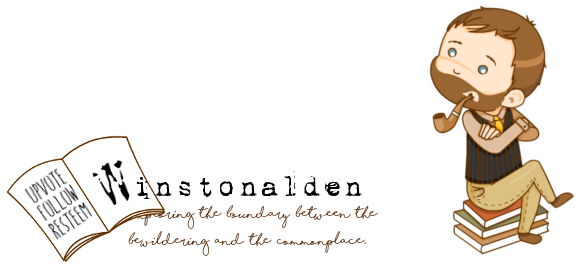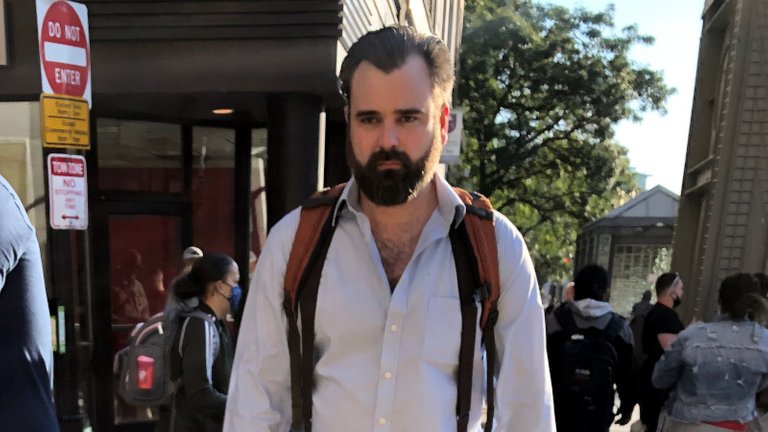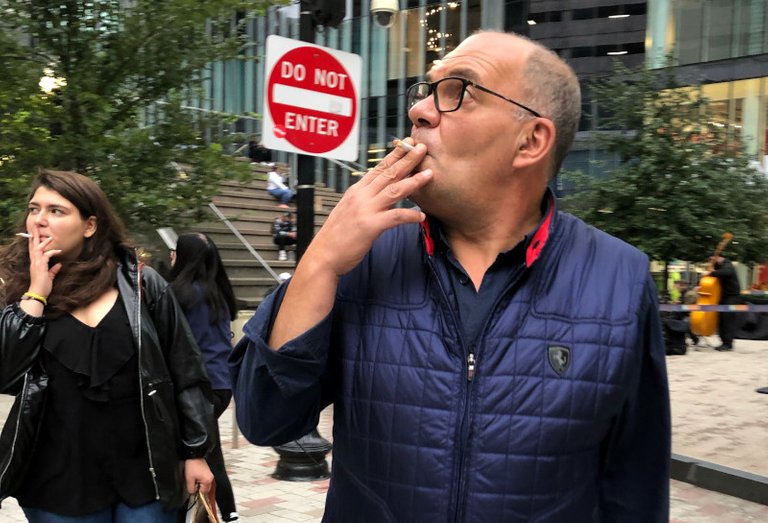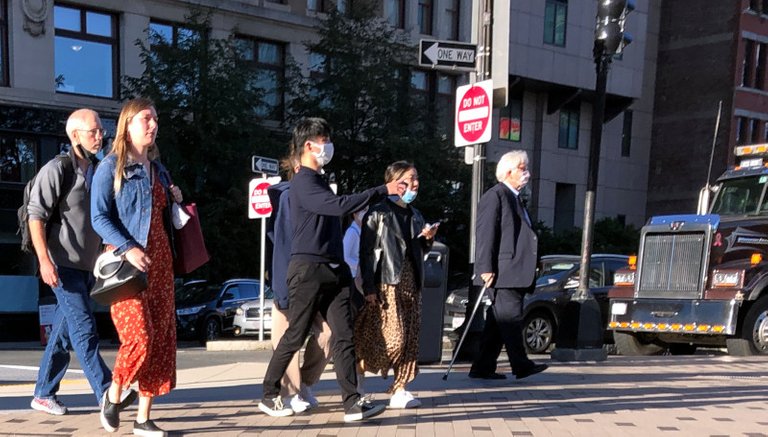Why has Science Fiction taken such a pessimistic turn?
Remember all that midcentury optimism of Clarke, Asimov, Pohl, and Heinlein? You could pick up some thought-provoking popular entertainment, and conclude, of course we were going to get into space. If there were aliens there, they would be for the most part rational if not necessarily peaceful; and we would step into an interstellar community that would expand our culture and understanding; resources would abound and the post-scarcity economy would allow us to focus on education, the arts, self-actualization—all that good stuff on the top triangle of Maslow’s hierarchy of needs.
Today we’ve got Cixin Liu’s gamesmanship with rapacious aliens that wipe out any society brave enough to take a step into the void; Watts with more of the same but with the twist that ordinary humans are too stupid to figure out what’s going on, so we have to resurrect hyper-smart vampires from our mythological past to navigate the perils of first contact (while hoping they don’t revert to their old ways and just devour us here on Earth); Kim Robinson’s Aurora, where our generation ship encounters inevitable disaster on arrival, and limps home, demonstrating on top of this mission failure the moral failure of subjecting the descendants of explorers to the risks of a voyage it was impossible for them to consent to.
The message: don't aspire to space travel. You'll probably die and you're a bad person for trying.
On screen, meanwhile, we’ve seen the bright optimistic future of Star Trek’s The Next Generation devolve into the black moral hellscape of Discovery.
These new books are all smart enough (not so much the new TV) and compelling in their way, but there’s an overwhelming sadness to them. It's as if in the popular imagination we've given up on the universe, accepted that this planet is all we’re going to get, and on top of that, we’ve probably fucked it up so badly we’re heading for extinction--and the sooner the better, because we're nasty people!
Somewhere along the line, SF went from being the genre of “anything is possible” to a finger-wagging scold that tuts: “you better not try!”
It's not just SF. This pessimism is everywhere, now. Birth rates have reached their lowest point ever, with over a quarter of childless people citing climate change as the reason to forgo reproduction.
Bo Burnham stays inside and makes a 90 minute comedy special by himself where he sings hauntingly, even a little eagerly, about “the ending of it all.”
What can you say, we were overdue.
But it’ll be over soon.
Just wait.
He's responding to the psychological challenge of the pandemic, of course. But it comes off as the revelation that the world is ending anyway; this forced isolation that we've all withdrawn into--it's just a final step in the fall of civilization, something we've done willingly so that we can get it over with.
But what if things really aren't so bad?
I’ve been haunted by this article in The Guardian I read last year about the real-life inspiration behind Lord of the Flies.
Consider this dismal book. It's required reading in just about every high and middle school. (I actually had it assigned twice.) A book whose theme is that humanity is downright brutal and primitive at the core. Strip away the strictures of society, and kids will be torturing, humiliating, and murdering each other at every opportunity. See them do it! Then go from microcosm to macrocosm and witness how the barbarism is still there among the adults in the greater world, just institutionalized and hidden beneath the surface.
Man, we’re a nasty species, aren’t we? Write a paper exploring our brutal nature and turn it in on Monday.
But when a small group of boys got lost on an island for real, their experience—their choices and behaviors—were the opposite of what Lord of the Flies portrayed.
These kids cooperated extensively. They worked together to gather food and water. One of them fashioned a guitar from a coconut and a piece of driftwood and played it to lift their spirits. They did what they could to signal passing ships. It took over a year. By the time rescuers arrived:
…the boys had set up a small commune with food garden, hollowed-out tree trunks to store rainwater, a gymnasium with curious weights, a badminton court, chicken pens and a permanent fire, all from handiwork, an old knife blade and much determination.
When one of them broke his leg in a fall:
The other boys picked their way down after him and then helped him back up to the top. They set his leg using sticks and leaves. “Don’t worry,” Sione joked. “We’ll do your work, while you lie there like King Taufa‘ahau Tupou himself!”
What really strikes me about this story is the bonds these children formed for the rest of their lives. You’d think that after a terrible ordeal like this, the last thing you’d want to do is stay around the people who suffered with you. You definitely wouldn't want to get back on a boat with them, would you?
But no, they remained exceptionally close friends for the rest of their lives. They even took a job on a lobster boat so they could continue to work together!
This story has haunted me for over a year now. I think about it any time I read something dark, depressing, or pessimistic. Let’s face it, we’ve had a lot of that in the past couple of years. But it goes back further than that.
How could Golding take such an inspiration story from the headlines and turn it into an example of our darkest nature? Well, another tidbit from that article: it turns out the author of Lord of the Flies, was an alcoholic who hated children. Who better to assign as required reading for just about all the children in the country?
Pretty much everything we consume as entertainment, and everything we're taught to admire and study as literature, is downright wrong about human nature, about conflict and cooperation, about what really happens to us when the going gets tough. Especially--especially!--the tripe assigned in schools!
Things were bad enough when I was being indoctrinated by my 90s public education.
But now... fer Chrissakes, The Hunger Games is required reading in many schools. A book in which kids hunt each other to death in a Battle Royale, and society just kind of...goes along with it?
My boss recently told me his daughter was completing a mandatory unit on Dystopian Literature for a Sophomore year English class. At least they're calling it what it is, today.
But why are kids are being forced to wallow in this stuff?
I was a nerdy kid and a great student. But I'm starting to think the jocks had it right. Nobody needs this stuff. Maybe reading all those books was over-rated.
I’d like it if our educators took some time to consider this (and our writers too): maybe human beings aren’t, on the whole, despicable monsters. Maybe we’re capable of kindness, generosity, and cooperation. We’ve been successful as a species because, on average, we produce more than we consume.
If this weren’t the case, we’d have gone extinct long ago.
What if more people, with more talented and generous minds, can create more for the world? What if, as we outgrow a planet which feels undeniably smaller, we harness our resources with more care and skill, and eventually migrate to the stars?
Maybe it’s just the golden-age Science Fiction fan in me who believes this could happen.
But if students are being forced to complete a reading unit of Dystopian Literature, would it hurt to give equal weight to optimism?

Unless otherwise stated, photography is the work of the author. Feel free to copy, remix and share photographs from this post according to the terms of a Creative Commons Attribution Sharealike 4.0 International license.
Signature illustration by @atopy.




Well met Winston!
I like the notion that we live only one life. Unless we read 10,000 books and experience 10,000 lives. This should not take the place of physical challenges but hold its role in a well balanced yet dynamic lifestyle.
The way things are now, there is just a big market for this dystopian style of fiction. How many people will look you straight in the eye and insist we are living in a simulation? I would bet half of those people had their awakening watching The Matrix way back when. ;) There definitely needs to be a little more positivity and I look forward to a return to that in popular fiction.
Such a well-put-together article with some real though-provoking questions!
Thanks, Zeke!
I've certainly got nothing against a market for books (and ideas) and people reading whatever brings us pleasure. I just question why certain scenarios and ideas seem to bring us pleasure. And why we would select the grimmest of them to become part of our schools' core curriculum.
And yeah, the Matrix simulation thing is starting to feel a little overdone, isn't it? Although I might feel a little differently if I ever get myself a pair of VR goggles...
You learn something new every day, don't you? To be fair, as someone who frequently imagines the worst just for sport, I can see why he would shun the much happier truth for a more fascinating fantasy.
I wish I knew an answer to why there's so much pessimism in this modern age, as it's something that's been on my mind a lot lately, as well. Maybe it's just a phase? Maybe, to take a more conspiratorial turn, it's more useful to keep people down and harrowed, since they're less likely to function well and develop? Truth is, I don't honestly know. I'm just trying to keep some optimism alive in myself (at least) despite all that.
PS: I missed your posts ;)